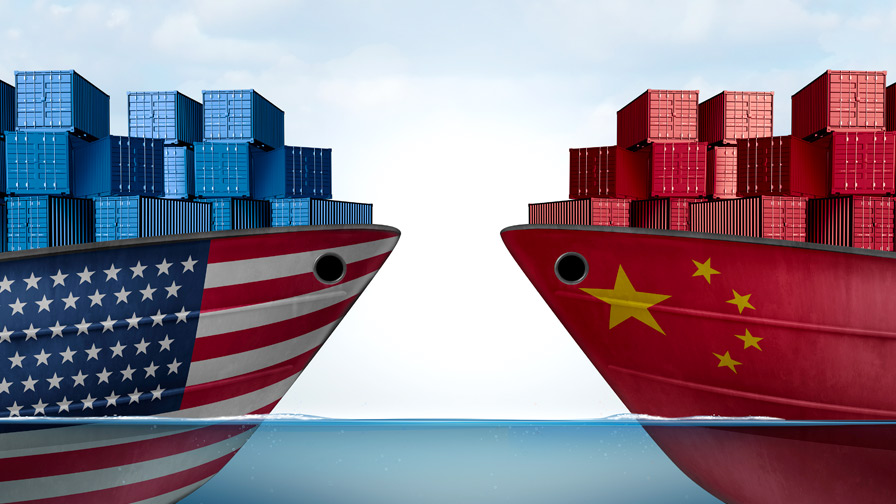Small Steps Are the Way for Sulphur Mills
While China’s industry deals with a difficult transformation, and India eyes the opportunity, the nuances of the situation can’t be overlooked. India is grappling with its own set of challenges, reminds Bimal Shah, Director of Mumbai-based Sulphur Mills Limited.
“India’s infrastructure is slower and movement takes time. Regulatory sometimes takes more time,” Shah says.
There is a concern that China could reverse course on its environmental crackdown, leaving India with overcapacity, and so India must be conservative. This cautious outlook is also rooted in a concern that overall use of synthetic chemistries will go down while biological-based products surge, he says.
While China could not go back to its former production ways overnight, “nor should India try something new overnight,” Shah said at the company’s meeting room at the AgriBusiness Global Trade Summit on Aug. 2. “India is not ready also – there is some dependence on backward integration, and a lot of intermediates still come out of China. It’s a good chance for India to buckle up and get the manufacturing and the backward integration into intermediates set-ups.”
“I see a good next five years, at least, to set the pace for the manufacturing in India. That is not for all raw materials from China, but 40% to 50% of raw materials I think is a fair number. Now, how fast it happens, how quick our infrastructure comes, and how fast the regulatory works – all of that is another thing.”
With this and other factors in mind, Sulphur Mills has chosen to take a more conservative approach to expansion than some of its competitors (the UPL-Arysta deal comes to mind).
“We were dependent on China for active ingredients, and one baby step we took was investing in our own facilities to add manufacturing of AIs and intermediates,” Shah says, “not only for ourselves but whatever we can part with also. But it’s more for internal consumption, and to be less dependent on other active and intermediate manufacturers and other companies in China,” he explains.
“Currently we have some basic older chemistries like chlorpyrifos, thiamethoxam, metrabuzin, and pendimethalin. We have additional land and are expanding the capacities of existing products or chain chemistries, which is something we feel that could be missing based on this whole environmental issue. We are looking at some new chemistries that are just coming off patent and deciding on new products and investments, which we should have more clear in the next two to three years.”
Sulphur Mills is also making more headway in formulation technology – it is India’s largest manufacturer of microencapsulations. The company has an R&D lab and develops and markets its own proprietary formulations, as well as for multinationals.
“We are looking for some forward integration for distribution, because more of our products require a lot of training — for the person who is trying to sell it, distribution who is going to use it, and the farmer who is going to apply it. We need to be able to show why the product is better than what is already being used,” he says, adding, “per kilo, it’s expensive, but per hectare it’s cheaper — if that isn’t explained right, then no matter if you have gold in your product.”
Shah on the uncertainty about the future:
“We see certain molecules disappearing too, such as some pyrethroids, because certain intermediates and chemicals that are available in China may not be available in other countries. We don’t know what is going to happen to those chemistries.
“India should not only be building in -1 but in -2, -3, -4 to be really backward integrated because otherwise there is still dependence. Lesser dependence is always good because there is so much uncertainty in China — the situation can change in five minutes. Forget a day.”
On Costs and Pricing:
“There is still a lot of dependency on China, but it needs to be more regulated. It can’t be just anybody making anything overnight without any policy or environmental conditions not looked at, so hence the cost is less. The Chinese government gives 11% to 13% as rebate on exports — that’s also a benefit for them. Of course, the cost is going to be less,” he continues.
“At the end of day, if you don’t have a cost of producing it the right way, you are cheaper. India has had a concern for the environment from the beginning, so the plants are expensive to run compared to China.
“Now China will go through the same things and have the same restrictions — the cost is going to increase. Because of the economy of scale and size of plants in China, there will be differences in pricing (with India) of course, but it won’t be drastic as earlier.”
On Investing in India:
“Even multinationals are having problems because they’ve set up a lot of their backward bases in China, and now they’re concerned. In fact, even Chinese companies are concerned that, ‘We don’t get to start here, so why don’t we invest in Indian companies and make something there?’ The laws are there, they are more stringent from the beginning and cost more, but you make the product, at least, rather than zero. In China, they are saying, ‘Go to Mongolia’ and do this and do that, and it’s not working well.
“That uncertainty in dealing with China — whether there is an environmental concern or something else — is always going to be there. That’s one thing with the Indian manufacturing base: the reliability of information and if something happens it is more long-term and stable. In this year or next year, too, if you’re buying something, you never know if your contract is going to be agreed, your timeline agreed, so there are a lot of issues. I think India has the benefit of reliability and sustainability. A lot of multinationals are now investing in India to manufacture their AIs or intermediates.”







